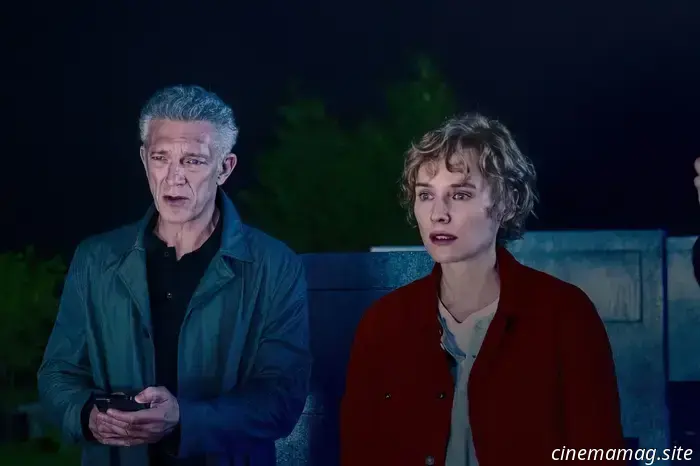
David Cronenberg discusses the theme of life after death in his latest film, The Shrouds.
David Cronenberg chuckled through his tears while crafting The Shrouds, his 23rd feature film. The movie, which continues his lifelong investigation of life and death — particularly how technology blurs that line — was inspired by the passing of his wife of 38 years, Carolyn, who succumbed to cancer in 2017.
The Shrouds centers on eco-aware businessman Karsh (Vincent Cassel), who copes with the loss of his wife Becca (Diane Kruger) using a cutting-edge technology he dubs GraveTech. This includes a shroud with cameras that lets individuals observe their loved ones' decay. The film explores the question of whether there can be life after death — not for the deceased, but for those they leave behind.
Known for his cool demeanor, which can often come across as deadpan humor, Cronenberg found that addressing profound emotions benefited from a sense of professional detachment.
“In the writing process, it felt intensely emotional, but I was also laughing. Yet, when you're writing, you're creating a work of fiction. At that stage, you're already distancing yourself from the raw emotions of your life events,” he shared with MovieMaker during our conversation at the New York Film Festival in September.
“Filmmaking is highly technical. Engaging with the craft of making a film creates distance. Ironically, to create an emotionally compelling film, you need to be detached from that emotion. You can’t be enveloped in your sorrow while also trying to make a great film.”
He reconnects with his emotions when the film is screened for audiences.
“Suddenly, you’re just a member of the audience without any control over it,” he remarked. “At that moment, you experience it differently.”
Cronenberg's influence is evident across contemporary cinema, from Julia Ducournau’s 2021 Palme d’Or-winning Titane, which was inspired by his 1996 Crash, to Coralie Fargeat’s 2024 The Substance, which draws from his body-horror classics like The Fly and Dead Ringers. New corporate efforts to merge our bodies with technology — such as Ray-Ban Meta “smart glasses” and palm-recognition payment systems at Whole Foods — can evoke moments from Cronenberg’s 1983 Videodrome, where James Woods’ character has a Betamax inserted into his torso.
We spoke with the Canadian visionary about aging, art, and atheism.
David Cronenberg on Holding on and Letting Go in The Shrouds
David Cronenberg. Photo courtesy of Cronenberg
Joshua Encinias: At 82, what insights do you have about the body that you lacked at the start of your career?
David Cronenberg: There are numerous things that can go awry that you never anticipated. Many are subtle and peculiar, irrespective of all the health literature and research you may have perused.
I find myself discussing physical ailments and the medications my peers are taking. It’s both amusing and horrifying. However, I’m also well-acquainted with many young individuals. I have three children and four grandchildren, and these conversations are prevalent across generations. It's not merely an issue of aging; everyone is confronting unusual health situations. I believe this is partly due to the unprecedented accessibility of medical information via the internet. In the past, people had to rely solely on their doctors for health-related knowledge.
But regardless, it’s a fascinating time. I hope you'll get to experience it.
Joshua Encinias: In The Shrouds, the sound of Becca’s hip breaking in bed is one of the most unsettling sounds I've encountered in a long time. Yet, it also carries a certain beauty, as Becca and Karsh understood that having sex would result in harm to her bones, and they made the choice to proceed anyway.
David Cronenberg: Yes, I appreciate that nuance, and I believe you have a point. Our sound and foley teams dedicated considerable effort to capture that sound accurately with my guidance, as I have experienced something similar.
Joshua Encinias: Why do you think the Cannes audience didn’t find The Shrouds particularly humorous, while viewers at the Toronto International Film Festival and New York Film Festival did?
David Cronenberg: The Cannes audience likely felt it would be inappropriate to laugh at a film centered on death and grief, resulting in a subdued screening — which was inevitable. Nonetheless, it was a powerful experience. I prefer the reactions seen in Toronto or New York.
Vincent Cassel in The Shrouds. Photo from Janus Films
Joshua Encinias: Why is the audience at Cannes more serious?
David Cronenberg: The Cannes Film Festival audience is quite an eclectic mix: you have local residents, numerous distributors assessing the film for potential deals, and many celebrities. So it’s not a typical audience.
Moreover, there’s the language barrier. The film features two sets of subtitles, English and French, along with the dialogue.



Other articles
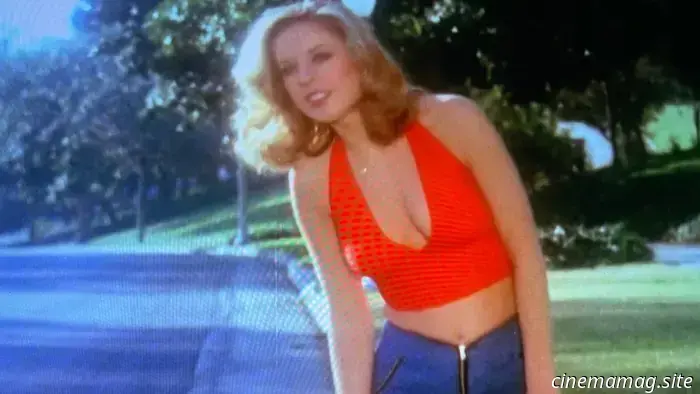 12 Behind-the-Scenes Stories of Kentucky Fried Movie, the Comedy That Launched Airplane! and Animal House
Without Kentucky Fried Movie, the debut film by Jim Abrahams and his collaborators, Jerry and David Zucker, we might not have seen Animal House or Airplane!
12 Behind-the-Scenes Stories of Kentucky Fried Movie, the Comedy That Launched Airplane! and Animal House
Without Kentucky Fried Movie, the debut film by Jim Abrahams and his collaborators, Jerry and David Zucker, we might not have seen Animal House or Airplane!
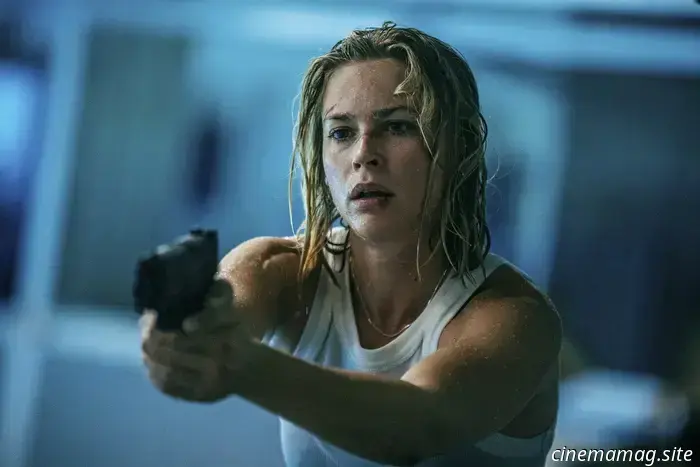 A mother battles to locate her son in the trailer for Netflix's action-thriller Exterritorial.
In anticipation of its release on Netflix later this month, the streaming service has unveiled a trailer and images for the forthcoming German action thriller Exterritorial. The film, which is written and directed by Christian Zübert, features Jeanne Goursaud in the role of a former special forces soldier who is on a frantic quest to find her son, who has mysteriously disappeared without a trace […]
A mother battles to locate her son in the trailer for Netflix's action-thriller Exterritorial.
In anticipation of its release on Netflix later this month, the streaming service has unveiled a trailer and images for the forthcoming German action thriller Exterritorial. The film, which is written and directed by Christian Zübert, features Jeanne Goursaud in the role of a former special forces soldier who is on a frantic quest to find her son, who has mysteriously disappeared without a trace […]
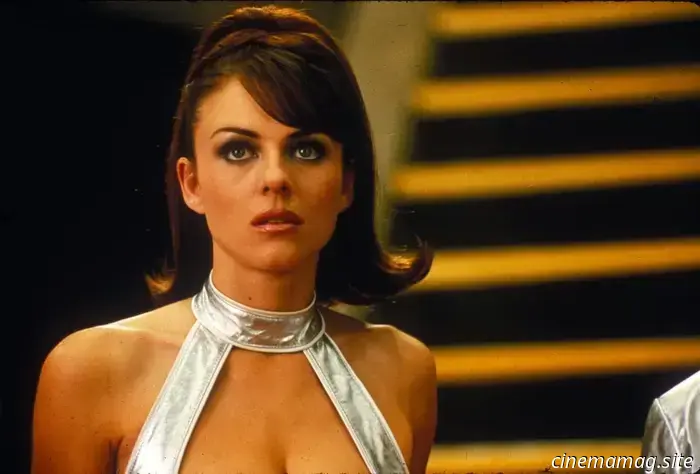 The 12 Most Hilarious Comedy Films from the '90s
Here are twelve of the most hilarious comedy films from the 1990s, a remarkable decade for humor. Turn to these '90s comedies whenever you're in the mood for a good laugh.
The 12 Most Hilarious Comedy Films from the '90s
Here are twelve of the most hilarious comedy films from the 1990s, a remarkable decade for humor. Turn to these '90s comedies whenever you're in the mood for a good laugh.
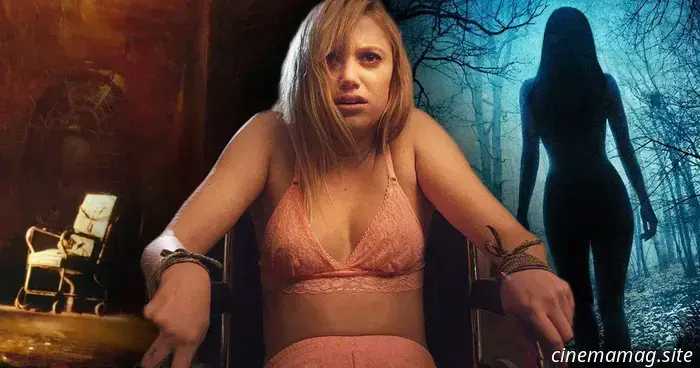 10 Excellent Slow-Burn Horror Films That Will Instill a Sense of Dread
Casey Chong presents ten slow-burn horror films that will evoke a sense of dread. One of the fascinating aspects of the horror genre is its wide range of elements, spanning from body horror to found footage, dark fantasy, slasher, and supernatural themes. Among these is the slow-burn horror subgenre, which, as the name indicates, emphasizes a gradual and intentional buildup of tension.
10 Excellent Slow-Burn Horror Films That Will Instill a Sense of Dread
Casey Chong presents ten slow-burn horror films that will evoke a sense of dread. One of the fascinating aspects of the horror genre is its wide range of elements, spanning from body horror to found footage, dark fantasy, slasher, and supernatural themes. Among these is the slow-burn horror subgenre, which, as the name indicates, emphasizes a gradual and intentional buildup of tension.
-Movie-Review.jpg) Sinners (2025) - Film Review
Sinners, scheduled for release in 2025. Written and directed by Ryan Coogler. The film features Michael B. Jordan, Hailee Steinfeld, Jack O’Connell, Wunmi Mosaku, Jayme Lawson, Omar Benson Miller, Delroy Lindo, Li Jun Li, Lola Kirke, Yao, Miles Caton, Peter Dreimanis, Christian Robinson, Jermaine Mctizic, MD. Shinha Sarder, Alamgir Hossain Raj, and MD. Meyaraz Hossen Rahad. SYNOPSIS: In an effort to escape their […]
Sinners (2025) - Film Review
Sinners, scheduled for release in 2025. Written and directed by Ryan Coogler. The film features Michael B. Jordan, Hailee Steinfeld, Jack O’Connell, Wunmi Mosaku, Jayme Lawson, Omar Benson Miller, Delroy Lindo, Li Jun Li, Lola Kirke, Yao, Miles Caton, Peter Dreimanis, Christian Robinson, Jermaine Mctizic, MD. Shinha Sarder, Alamgir Hossain Raj, and MD. Meyaraz Hossen Rahad. SYNOPSIS: In an effort to escape their […]
David Cronenberg discusses the theme of life after death in his latest film, The Shrouds.
David Cronenberg wept while laughing as he penned The Shrouds, his 23rd feature film.
